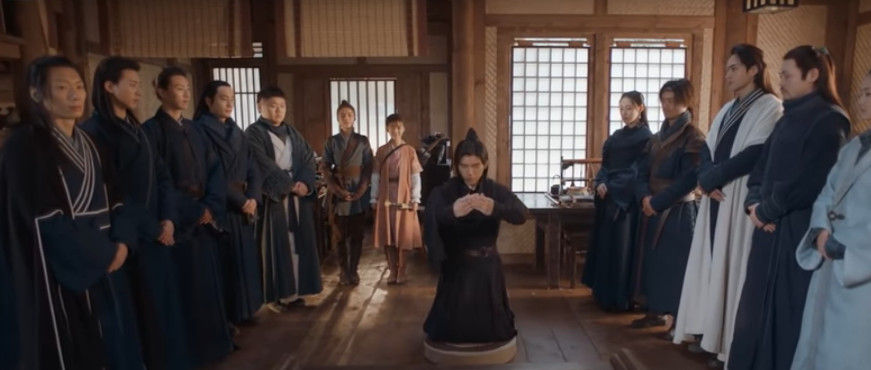When Your Founder Is NOT A Saint
- walkingtengu
- Apr 29, 2019
- 3 min read
There are a lot of myths passed around in the martial arts. Sometimes called oral history, there are patterns that can be found in these stories and I would argue that these patterns, particularly in the creation myths of the martial arts, can represent more about the practitioners than about the founders themselves. A common story in pre-modern Japan is that so-and-so went to such-and-such mountain. Meditated for one hundred days and then was enlightened to the principles of swordsmanship (either on his own or by a supernatural source).

More recently we hear stories about so-and-so being a weak and sickly child, but then after much hard work and training he went on to defeat so many bigger and stronger opponents.
(I will be using the pronoun "his" throughout the article as there is only one martial art, that I am aware of, that claims to have been started by a woman. This would be Wing Chun and it too uses the paradigm of the smaller, weaker practitioner defeating the bigger, stronger opponent in it's creation story. If you know of another martial art that claims a female founder I would love to hear from you!)
While the minor details may differ, there is one thing that these stories all have in common. The founder of the martial art is represented as a person to model one's life after. If you just be more like so-and-so, you too can be enlightened to the ways of your martial art.
There is a transformative process attributed to the practice of the martial art in question that we are told, you too can partake in, if you follow and practice the ways of the founder.
One of the bothersome side effects of this process is that the founder of a martial art is often lifted up as an example of someone to emulate. By itself, this isn't necessarily bad, but the founder often takes on heroic or saintly characteristics. He is often treated as a guru while alive and then goes on to semi-deification after death.
So it was particularly noteworthy to me when years ago I came across a martial art that does NOT put their founder in a saintly position but instead tells the story of how his poor choices should be a lesson in what not to do.
The original website (https://arakiryu.org/) where I read the story no longer lists it, but a version can be found on the Wikipedia page:
In any event, after one hundred days of austerities, Fujiwara became, "enlightened into the mysteries of combat, and from that time forward, it became easy for him to defeat the strongest men throughout Japan." The text continues, however, that, "he became lost in folly, and ceasing to love the art for itself, came only to care about winning. He acquired a filthy name." This of course refers to the hubris which can result from unbridled success coupled with an absence of the moral and ethical center upon which power should be built. Though not explicitly written in this text, it is implicit that he recovered his spirit and honor and became a moral individual. This text is rather unique among martial art origin stories in its recognition of the intoxication of power.
This was incredible! Here was a martial art that used the mistakes of their founder to provide a lesson for future generations in what not to do. To me this was representative of the practicality and honesty of this art's generations that they would have preserved such a story and resisted the temptation to be like so many other martial arts and lift up their founder into semi-deification.
Today, when word comes out that one's instructor or the founder of a martial art was a flawed individual. I've seen many people go through a crisis of faith. They question whether all the days of their own practice are now tainted by the other person's bad choices. As if all the responsibility for the student's practice is placed on the shoulders of this other human being.
This is such a mixed up view. Your practice is your own. It is only as valuable as you make it, and your own self-honesty is what keeps your practice meaningful. Your teacher, your founder, while both important, is just a human like anyone else.
If more people took the stumbles of their founders or teachers and learned from their mistakes, we could in fact make our martial arts that much more resilient and refined.
Don't be afraid to acknowledge your founder was a flawed human. Learn from their mistakes and be better for it. Not just for yourself but for your training partners as well.
Listen to the podcast "Walking With The Tengu" at: https://anchor.fm/walkingtengu for analysis and thoughts on how classic works are meaningful to the modern martial artist.



Comments